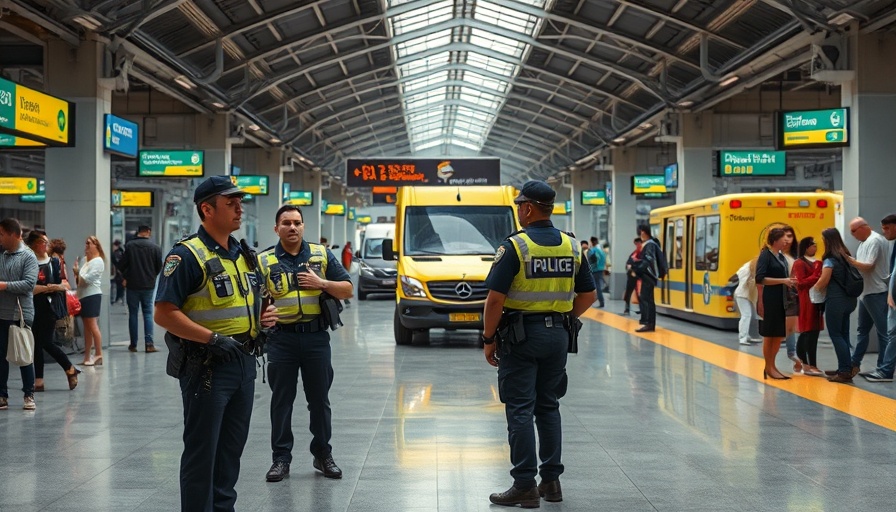
Tragedy Strikes Haifa: A Violent Attack in a Public Space
On March 3, 2025, an unsettling incident unfolded at the Lev Hamifratz Mall in Haifa, as an Israeli Druze man with German citizenship launched a brutal stabbing attack. What began as a regular day at a bustling location quickly turned tragic, leaving one individual dead and four others injured, three of whom are reported to be in serious condition. The attacker, who was neutralized by police, carried out this violent act in a space that many consider a safe gathering place, raising urgent questions about safety and community in the region.
The Personal Stories Behind the Statistics
The victim of this heinous attack was a 65-year-old man, a tragic reminder of the personal toll that violence takes on societies, deeply affecting families and friends left behind. Each casualty represents a unique story—a life interrupted and a community shaken. These tragic events not only create a ripple of grief but also ignite fears and anxieties among the populace regarding their safety in communal spaces.
Contextualizing the Attack: A Widening Divide
Israel has experienced ongoing tensions stemming from deep-rooted political and socio-economic issues, particularly in areas involving Palestinian and Israeli relations. Reports indicate that the assailant was a resident from a Druze town, suggesting a complex interplay of local grievances and national sentiments. As outlined in a recent article from Al Jazeera, security officials are currently scrutinizing the motives behind similar attacks, often categorizing them within the broader context of the Israeli-Palestinian conflict. The necessity for interfaith dialogue and comprehensive strategies to address these divides cannot be overstated.
The Broader Implications for Society
This violent episode arrives at a time marked by rising tensions surrounding humanitarian issues and ongoing negotiations between Israel and the Palestinian group Hamas. With aid to Gaza recently halted amidst stalled ceasefire talks, the environment remains charged and precarious. Many commentators, including sources like Haaretz, have indicated a cycle of violence where each attack feeds into a narrative of hostility and retaliation, posing a challenge for advocates of peace and coexistence.
Fostering Understanding Amidst Conflict
For those around the globe who are supportive of human rights and social justice, these incidents demand a response beyond condemnation. Culturally engaged individuals and mission-minded Christians can play a pivotal role by advocating for peaceful dialogue and reconciliation efforts. Understanding the cultural and historical nuances of such conflicts is essential for addressing the root causes and promoting healing. Initiatives focusing on interfaith cooperation are crucial in fostering meaningful conversations and building bridges within divided societies.
Call to Action: Advocate for Peace and Justice
It is vital that we, as a community, do not turn away from the plight facing many in conflict-ridden areas like Israel and Palestine. We encourage readers to educate themselves further on these issues, participate in local advocacy initiatives, and support organizations dedicated to humanitarian efforts and interfaith dialogue. Together, we can foster a commitment to peace that extends beyond borders and beliefs.
 Add Row
Add Row  Add
Add 








Write A Comment